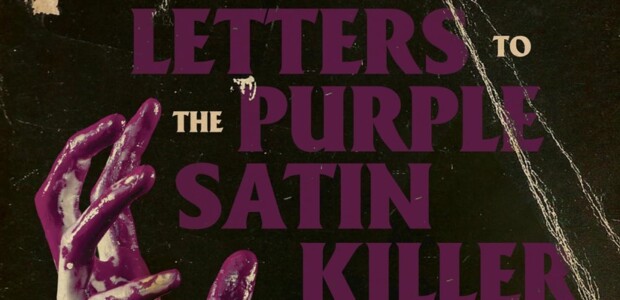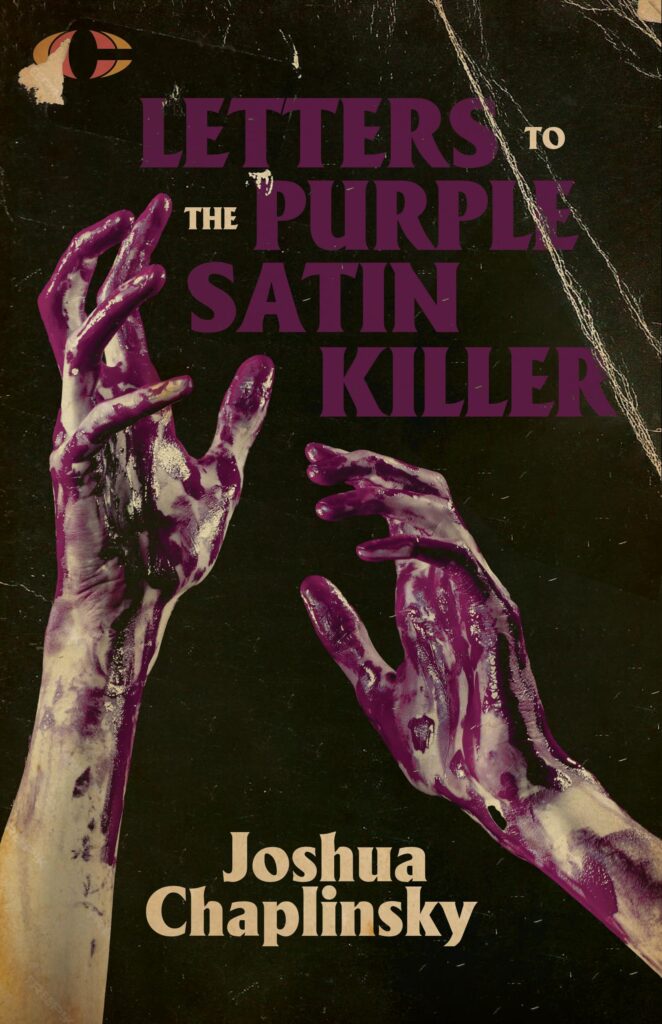Serial killers scare the bejeezus out of me. This has been the case ever since a probably-a-little-bit-too-young viewing of SE7EN, and has been born out time and again through adulthood, whether in reading American Psycho and 300,000,000, or in watching MAN BITES DOG and THE POUGHKEEPSIE TAPES, or in deciding I didn’t need the Hannibal TV series slurping around my brain and cowardly bowing out after one episode. It’s a simultaneous fascination and revulsion that’s followed me my whole life – the understanding that the only kind of horror stories that truly frighten me are the ones I know could really happen, and that sometimes I want to engage with that fear whether I “enjoy” it or not. And if our modern murder-industrial-complex of podcasts, docuseries, and semi-fictions in every medium is any indication, I am far from alone.
Indeed, it’s this burgeoning network of monetized sado-content, far more than the sadism itself, that serves as the bloodstained jugular hook for author Joshua Chaplinsky’s Letters to the Purple Satin Killer, out now from CLASH Books. Though his titular murderer (regularly abbreviated PSK) is undoubtedly the center of attention, it is only through the attentions of others – namely, the 400+ curated pages of letters he receives while in prison – that we learn anything about him. Many of his creatively grotesque atrocities are recounted, but only in the cursory detail of police reporting, and while it’s made clear that he does write back often – to his fans and haters alike – we only ever glimpse his designs or glean his motives through their secondhand eyes.
By building its monster from the outside-in, rather than the inside-out, Letters to the Purple Satin Killer gives itself a lot of freedom to explore, and lampoon, our nightmarish National obsession. While his chief correspondents are people who know him personally or have been affected by his crimes, it’s the connective gristle of gadflies and grifters that really ziptie the book together. From the opportunistic pornstar self-vajazzle-tatting PSK tributes on OnlyFans, to the suburban black metal poseur composing concept album odes to his exploits, to the feuding proprietors of two “murderabilia” businesses competing for exclusive rights to his toenail clippings, the shameless race to snag a piece of PSK’s personal IP is one of the book’s funniest, and most damning delights. Chaplinsky often plays things for laughs for pages at a time, only to drop a truly heinous interaction into the mix that hits all the harder for the false sense of satirical security he just lulled you into. While PSK’s correspondences with his mother (who hilariously begins each letter with the repeated reintroduction “It’s your mother.”) in particular, read like vignettes straight out of Todd Solondz – that blackest pitch of comedy that wrings nervous laughter from our bowels almost shamefully unbidden – the damage he’s done to his lone escaped survivor and the countless loved ones of his 24 victims comes through in myriad, surprising, and occasionally even moving ways.
Perhaps most well-realized of all, however, is Antonio, a disturbed young man clearly sliding into his own mental illness, and to whom PSK becomes a kind of violence guru (Death Coach?), “helping” him tap into his inner sociopath from afar until he’s effectively committing vicarious attacks through his surrogate on the outside. Chaplinsky uses this dynamic – as well as the wild, mood-swinging behaviors of a pair of polar opposite love interests – to explore the blurry, and largely unknowable lines between acting crazy, and being crazy, again raising fascinating questions about how we differentiate between the two from the outside looking in. How crazy does a person have to act, before other people decide they’re no longer acting? And once they’ve crossed that line, is there ever really any coming back?
Though PSK goes all the way to the chair refusing to confess to his crimes, or offer closure to those shattered in their wake, he becomes along the way a kind of confessor to others.
Give or take an occasional lapse into exposition, the epistolary form serves Chaplinsky well throughout – allowing people to speak their minds bluntly and plainly in ways that they likely never would in conversation, and creating a cross-section of gothic Americana as deranged as it is all-too-familiar; as batshit as it is banal. Unlike Blake Butler’s aforementioned 300,000,000 – a genuinely psychotic masterpiece that burrows into its supernatural mass murderer’s blood reign until the crimson crush of his accumulated gore paints the whole world impenetrably black – the end result of Chaplinsky’s prison penpal experiment is something closer to a man-shaped negative space – a blank slate dumping ground for all those conflicting comorbidities we, as a society, so love to project onto the serial killer mythos. As such, how you feel about Letters to the Purple Satin Killer will, in the end, likely say more about you than it does about him. It’s a Rorschach test in reverse. Rest assured, you may never watch a murder documentary the same way again.
Tags: Books, CLASH Books, Crime, Horror, Joshua Chaplinsky




No Comments